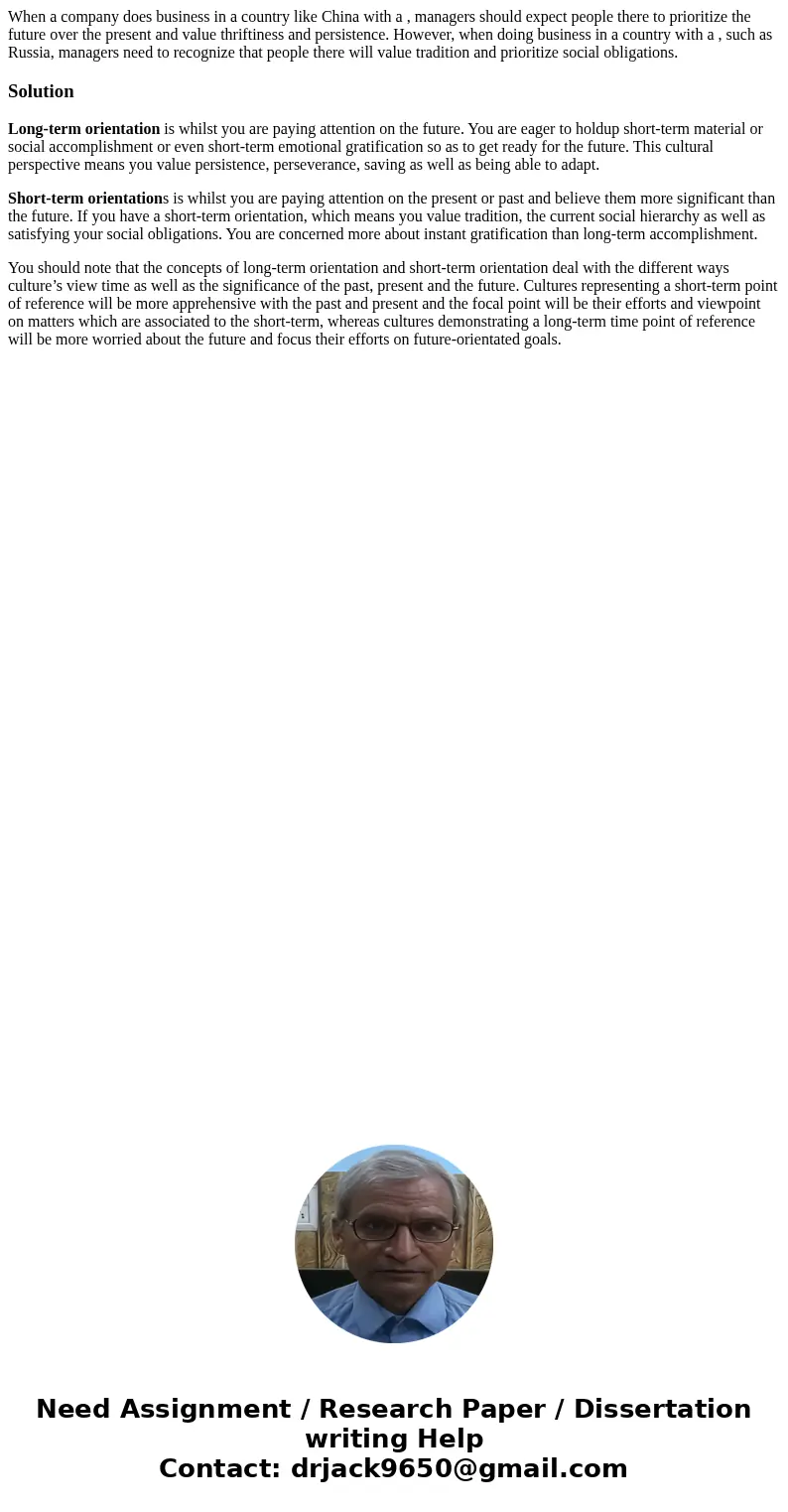When a company does business in a country like China with a
When a company does business in a country like China with a , managers should expect people there to prioritize the future over the present and value thriftiness and persistence. However, when doing business in a country with a , such as Russia, managers need to recognize that people there will value tradition and prioritize social obligations.
Solution
Long-term orientation is whilst you are paying attention on the future. You are eager to holdup short-term material or social accomplishment or even short-term emotional gratification so as to get ready for the future. This cultural perspective means you value persistence, perseverance, saving as well as being able to adapt.
Short-term orientations is whilst you are paying attention on the present or past and believe them more significant than the future. If you have a short-term orientation, which means you value tradition, the current social hierarchy as well as satisfying your social obligations. You are concerned more about instant gratification than long-term accomplishment.
You should note that the concepts of long-term orientation and short-term orientation deal with the different ways culture’s view time as well as the significance of the past, present and the future. Cultures representing a short-term point of reference will be more apprehensive with the past and present and the focal point will be their efforts and viewpoint on matters which are associated to the short-term, whereas cultures demonstrating a long-term time point of reference will be more worried about the future and focus their efforts on future-orientated goals.

 Homework Sourse
Homework Sourse